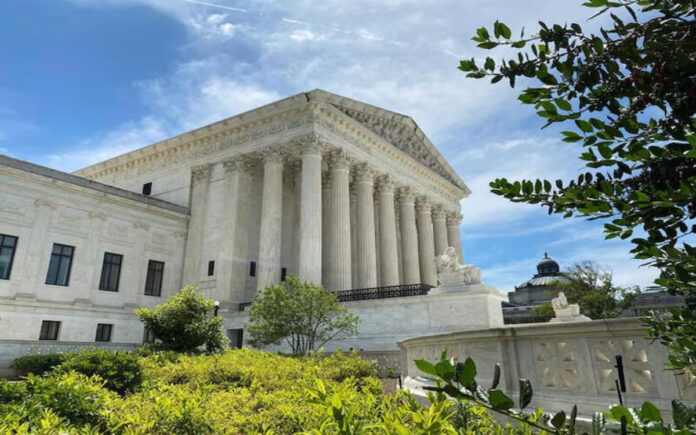Washington: The U.S. Supreme Court on Monday debated whether federal civilian employees are entitled to full salaries while on military leave, even when their service is not directly tied to a national emergency. The case centers on air traffic controller Nick Feliciano, who claims the Federal Aviation Administration (FAA) should have provided his full salary during a two-year Coast Guard Reserve deployment over a decade ago.
Feliciano’s service included escorting military vessels in Charleston Harbor during national emergencies linked to the Iraq and Afghanistan wars. Under current federal law, employees are eligible for differential pay — the difference between their civilian and military salaries — when called to service “during a national emergency.”
Legal Debate Over “National Emergency”
A federal civil service board and the U.S. Court of Appeals for the Federal Circuit previously ruled that Feliciano’s duties lacked a direct connection to a national emergency, thus disqualifying him from receiving differential pay. However, the case has now reached the Supreme Court, where justices appear divided over the broader implications of their eventual decision.
Justices Elena Kagan and Ketanji Brown Jackson raised concerns that agreeing with Feliciano could entitle federal workers to differential pay almost universally, as numerous national emergencies are ongoing. “That would render other criteria for differential pay in federal law superfluous,” Kagan remarked.
Andrew Tutt, Feliciano’s lawyer, argued that not all scenarios would trigger such entitlement, as national emergencies could eventually cease. However, Kagan expressed skepticism, stating, “It just seems like a world which couldn’t possibly exist.”
Practical Challenges Highlighted
Chief Justice John Roberts and other justices expressed concerns about the challenges federal agencies would face in determining eligibility for differential pay under varying circumstances. Roberts highlighted potential “difficult line-drawing problems” if Feliciano’s argument prevails.
Justice Neil Gorsuch extended the discussion to private employers, who are obligated under different laws to provide differential pay to service members and can face penalties for noncompliance. Gorsuch questioned the ambiguity in service orders and the potential burden this ambiguity places on private employers to ascertain whether their employees are engaged “during a national emergency.”
Also Read | In Qardaha, Rebels and Alawites Find Common Ground
Government’s Defense
Nicole Reaves, representing the U.S. Department of Transportation, the FAA’s parent agency, argued that service orders typically clarify their connection to national emergencies, reducing ambiguity. She also noted that such cases are rare, according to the U.S. Department of Defense.
Also Read | E3 Expresses Grave Concerns Over Iran’s Uranium Enrichment
Decision Expected by June
The Supreme Court is expected to issue its decision in Feliciano v. Department of Transportation (No. 23-861) by June. The ruling could have significant implications for federal employees and private employers alike.
For Feliciano: Andrew Tutt, Arnold & Porter Kaye Scholer
For DOT: Nicole Reaves, U.S. Department of Justice



